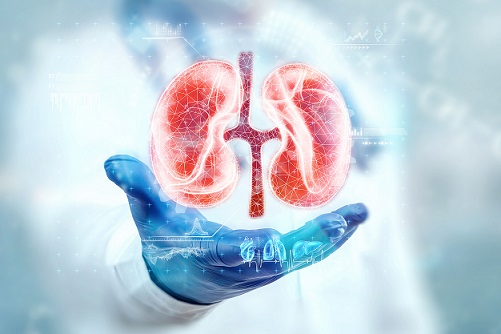World Kidney Day is celebrated on 10th March every year. Every year the activities of the day are organized with different objectives. The theme of this year’s Kidney Day is “Bridge the Knowledge Gap to Better Kidney Care”. Children, especially, need to be more aware about kidney disease, treatment, and care.
Kidneys are active while the baby is in the womb. Although the kidneys are less mature after birth and during childhood than in adulthood, they do not cause any hindrance to the normal development of the child. However, children’s kidneys can be easily damaged due to serious illnesses or side-effects from medication. In order to prepare better for any such situation, let us learn some important facts about kidneys.
What are the functions of kidneys in our body?
The kidneys remove accumulated impurities from the blood and retain essential substances; regulate blood pressure in the body; create and assist hormone production; help in blood clotting and keeping bones healthy. Every function of the kidney is very important in keeping the human body healthy. If the kidneys are not healthy, these functions are disturbed and cause severe problems. Let’s find out about these problems, and how they can be especially severe for children.
Congenital Kidney Problems in Children:
Congenital kidney diseases can be detected before the baby is born through ultrasonography. Urethral and bladder structural problems; Obstruction of urethral valves; Absence of kidney; irregularly sized kidneys; displacement and swelling of the kidneys are among some of the problems that may be confirmed through ultrasonography. Urinary tract infection (UTI) is one of the most common diseases in children.
In many cases, proper diagnosis and treatment of this disease is neglected. Repeated infections of the urinary tract can case the child to be at risk of kidney failure. It also increases the risk of high blood pressure for them in the future. In most cases, if the children do not receive proper treatment, their kidney functions deteriorate. However, it is completely possible to prevent or control kidney disease by using appropriate treatment at the right time. But how do you know if the child has kidney problems or not? s
Symptoms and Treatment of Kidney Disease in Children:
Frequent urination; urinary tract infection; bedwetting (over 6 years of age); passing blood in the urine; abdominal/back pain during urination; excessive water retention/swelling of the body; decreased urination; accumulation of water in the kidneys, enlargement of the kidneys; high blood pressure; congenital defects in kidneys, etc.
These symptoms may appear if someone in your family has kidney disease, if the baby is born prematurely or if the baby’s weight is less than normal after birth. The help of a specialist must be sought out as soon as there is suspicion of any of these symptoms. If the child is suffering from chronic kidney disease (CKD) and needs dialysis or a kidney transplant, there is no reason to worry because treatment for kidney disease is now available in the country.
Dr. Sabina Sultana
Senior Consultant and Coordinator
Department of Pediatrics and Neonatology


